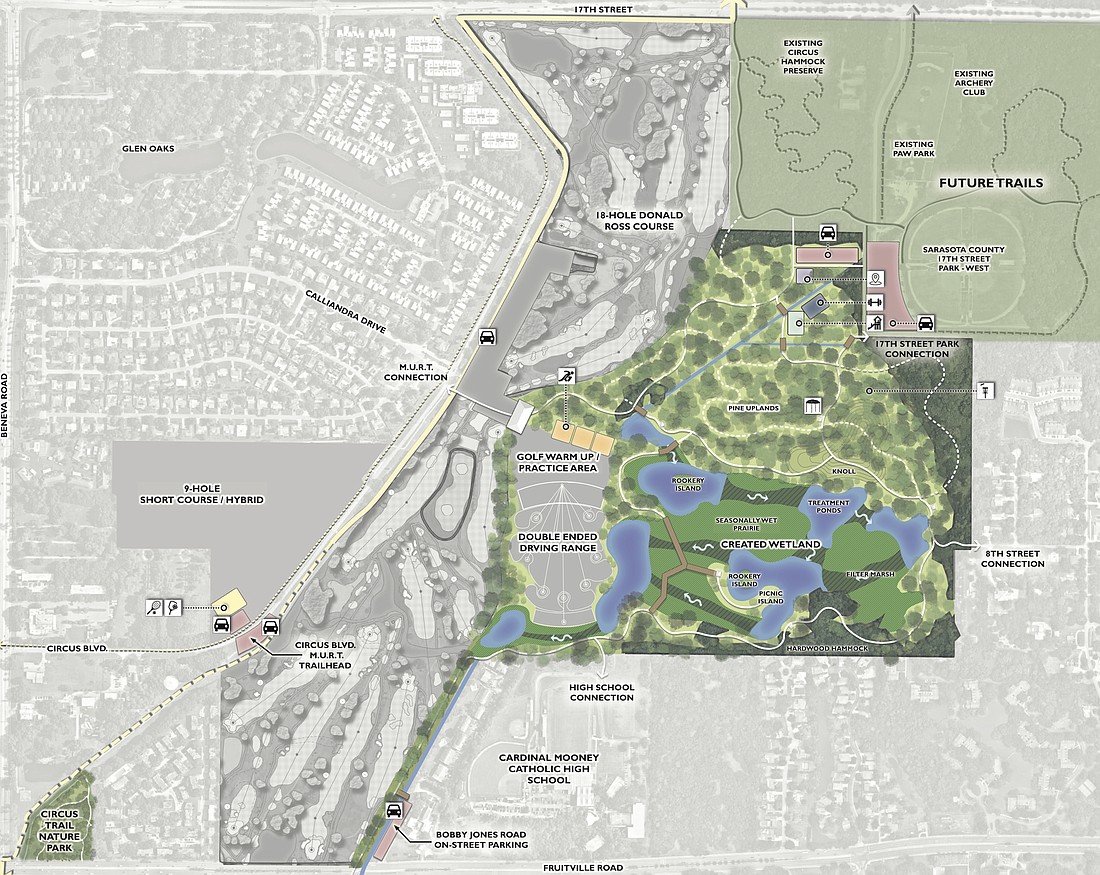- February 5, 2026
-
-
Loading

Loading

As a special meeting of the city’s Parks, Recreation and Environmental Protection Advisory Board held Monday to discuss options for renovating and redesigning Bobby Jones Golf Club, a divide emerged regarding the best approach for the future of the municipal course.
The city hired a consultant to develop three options for redesigning the 293-acre Bobby Jones property, each of which would create a mix of golf facilities and general public park amenities on the site. All three plans downsize the golf course from the existing 45-hole configuration. Two options would include 27 regulation holes, a nine-hole short course and more than 90 acres of parkland. A third option would further shrink the golf to 18 regulation holes and a nine-hole short course, increasing the parkland to 130 acres.
In a 4-3 vote, the parks board recommended approving option three. The City Commission is scheduled to discuss the design options at a Feb. 18 meeting after board members offered opposing views during a workshop last month. City administration has previously endorsed option three, arguing it is the most financially prudent choice and the design that would best serve the entire community.
The majority of the parks board expressed a similar sentiment. Board member Mary Fuerst said a plan that was more about parks and less about golf would be more likely to garner public support. She also cited data that said option three would offer better stormwater quality improvements and carbon protection than the other design alternatives. Board member Jerry Wells said both of those points made a compelling case for option three.
“It’s the largest amount of park area and the best option for the environment — the two boards that we’re representing here, parks and rec and environment,” Wells said.
Some of the parks board members were believers in the potential of a golf course that has struggled financially, depleting its financial reserves and depending on hundreds of thousands of dollars in annual subsidies from the city’s general fund. At Monday’s meeting, they said the course has suffered from decades of neglect and argued a meaningful reinvestment in infrastructure could bring golfers back. They said a larger number of golf holes would maximize the potential to generate revenue at the Bobby Jones site.
Board member Leo Fitzgerald said reducing the number of holes at the course would mean fewer opportunities for rounds played, which he feared could lead to pricing out some users.
“The one thing option three will do is close out the affordable golfer,” Fitzgerald said.
Chris Cianfaglione, a planning consultant with Kimley-Horn who worked on the facility designs, said projections showed option three as the most cost-effective plan even though it generated less revenue from golf than the others. Cianfaglione said that’s true for multiple reasons, including less money invested into the golf course and increased potential for lower-interest state loans.
All three plans carry a cost between $21.4 million and $22.6 million — figures higher than the $20 million estimate associated with renovating all 45 holes at the course. And, between operational costs and debt service payments, the city projects to pay between $1.2 and $1.4 million annually toward the property in all three plans.
Although he voted in favor of option three, parks board member John Tuccillo expressed displeasure with the situation the city found itself in.
“Regardless of what we do, ranging from nothing to any of the three alternatives, this thing will not make money,” Tuccillo said. “It’s a lousy investment.”